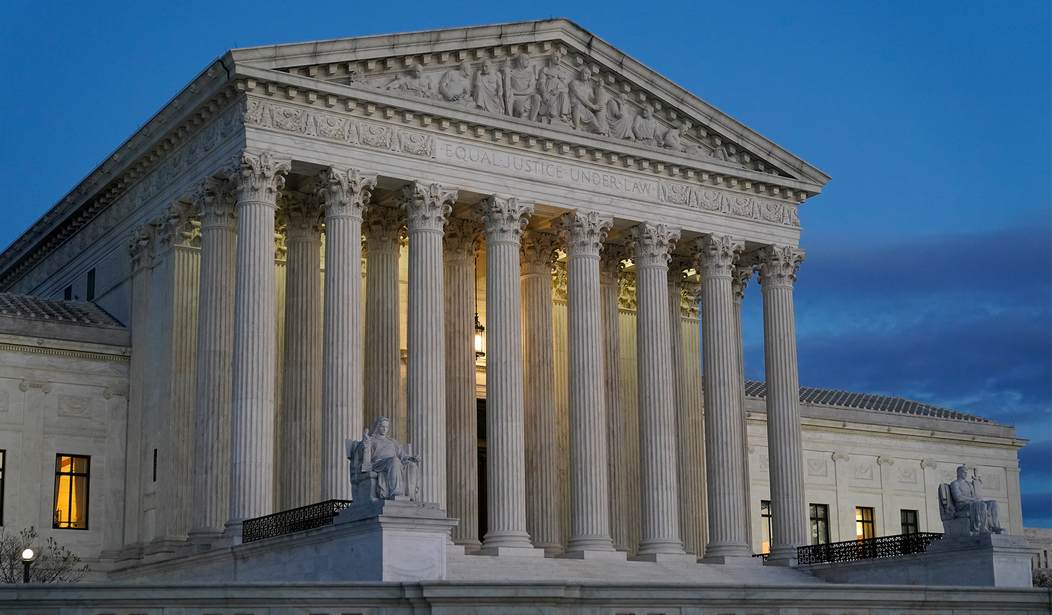Thursday marks the 231st anniversary of the U.S. Bill of Rights—the Constitution’s most specific commitment to protecting the personal liberties of Americans and to limiting government involvement in our lives. It is a tribute to the enduring wisdom and extraordinary political skills of the Founders that these crucial protections accomplish what might, at first glance, seem to be two contradictory purposes.
On the one hand, they ensure the rights of each of us to speak and live out the beliefs that set us apart as individuals. Yet they are also the legal glue that binds us together as a nation: our mutual commitment to preserving those rights, even for those whose views contradict our own.
To see how vital, fragile, and essential that balance is, one need look no further than the oral arguments heard earlier this month at the U.S. Supreme Court in 303 Creative v. Elenis. The case concerns a Colorado law that requires graphic artist and web designer Lorie Smith to say things she does not believe—including demanding that she promote views of marriage that contradict her own.
Even though Colorado officials have admitted that 1) she works with people from all walks of life, including those who identify as LGBT, 2) she chooses what to create based on the message requested, and 3) every website she creates conveys a celebratory message about marriage, the state still says it can force her to speak messages about marriage that contradict her core beliefs.
The organization I work for, Alliance Defending Freedom, filed a federal lawsuit against Colorado officials on Smith’s behalf, challenging the law’s application to her custom art and website designs as a violation of her First Amendment right to free speech.
Some of the questions posed by the justices during oral arguments suggest how vulnerable even our most basic freedoms are to interpretations of the law and the biases of those around us.
One persistent line of questioning suggested that Smith’s speech is not her own—that, as a graphic artist designing custom websites, she’s merely a conduit for telling someone else’s story … and therefore has no right to determine what messages she will or won’t convey.
That idea is both wrong and dangerous. A biographer doesn’t forfeit his right to free speech because the story he’s writing is of someone else’s life. A ghostwriter doesn’t forego free speech simply because she’s putting her words in someone else’s mouth. And a newspaper editor is still exercising free speech, even if that editor publishes a guest op-ed without changing a word.
The Supreme Court has held this for years. In Miami Herald Publishing Company v. Tornillo, the court stopped an equal-access law from forcing a newspaper to host a political candidate’s op-ed just because it ran his opponent’s op-ed days before. The high court upheld the newspaper’s editorial control, even though the piece would go out under a third party’s byline. Even perhaps well-meaning efforts by the state to prevent discrimination, the court said, didn’t transcend the right of the newspaper to decide what to publish through its own speech.
A second line of questioning suggested that Lorie’s custom websites don’t promote a view of marriage just by providing basic logistical wedding information like dates, locations, and names of the couple getting married. But even those details communicate that a marriage is occurring. And regardless, her art conveys considerably more than so-called logistics; as Colorado itself has agreed, every wedding website Lorie will create celebrates a view of marriage.
A third and final line suggested that Lorie could be required to communicate a message through a website if she had created an identical-looking website before in a different context. She serves people from all walks of life, but she cannot express every message. But some justices suggested that, if she’ll say, “God bless this marriage” to celebrate a marriage between a man and a woman, but not to celebrate other views of marriage, her problem has to be with the couple, not the message.
The problem with that presumption is that even the same words can express different ideas in different contexts. For example, “I support the president” communicates a different message, depending on whether “the president” is Joe Biden or Donald Trump. And on that logic, a black sculptor would have to create a custom white cross celebrating the racist Aryan Nation Church just because she created an identical-looking cross to celebrate her local Baptist church—no matter whether the cross means two very different things in the different contexts.
These questions reveal the dangers involved in compelling “speech” and underscore the importance of protecting it—not just for Lorie Smith and those who share her views, but for artists everywhere, including those who see the world differently than she does. That’s why, like all the other civil liberties protected by the Bill of Rights, free speech must be vigorously exercised and defended for everyone … not only in our courts, but in the public square.
David Cortman is senior counsel and vice president of U.S. Litigation with Alliance Defending Freedom (@ADFLegal).
Supreme Court Case Underscores How Vital the Bill of Rights Is to American Liberties
The opinions expressed by columnists are their own and do not necessarily represent the views of Townhall.com.

Advertisement
Recommended
Trending on Townhall Videos
Advertisement
Advertisement
Advertisement























Join the conversation as a VIP Member